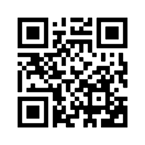“Less Tools, More Insights”: How Streamlined MarTech Boosts Efficiency in Thailand’s Startup Scene
In a business climate where growth is often equated with complexity, a quiet revolution is happening in Thailand’s startup ecosystem : MarTech Minimalism. At its core, this movement isn’t about abandoning tools, it's about using fewer, smarter technologies that produce better insights and outcomes. For Thai startups, where resources are lean but ambitions are bold, the minimalist MarTech approach can be the difference between scaling smart and scaling sloppy.
Why MarTech Overload Is a Trap for Thai Startups
Thailand’s MarTech landscape has matured rapidly. According to the Thailand MarTech Report 2025, over 43% of organizations are using more than 10 tools across five or more categories. Yet, this doesn’t always translate into better results. In fact, many startups suffer from fragmented data, siloed teams, and confusing workflows.
The report highlights three core challenges
- Lack of internal know-how – 69% of users struggle to maximize tool potential due to skill gaps.
- Overlapping functionalities – Multiple tools serve the same purpose but don’t integrate well.
- Inefficient planning – Startups adopt tools based on features, not fit, leading to underutilization.
The result? Tool sprawl that consumes time, budget, and team morale.
What Is MarTech Minimalism?
MarTech Minimalism is a disciplined, strategy-first approach that limits your marketing tech stack to essential, high-impact tools that integrate well and generate actionable insights. It prioritizes clarity over complexity, making it especially valuable for startups where every hour and baht count.
![]()
Why This Works in Thailand's Startup Environment
Thai startups often operate with 3–5 people across marketing, sales, and ops. These hybrid teams don’t need “more tools”; they need better tools. Here’s why minimalism thrives in this setting:
- Cultural context: Thai entrepreneurs often rely on LINE, Facebook, and e-commerce platforms like Shopee. Integrating these into a single view rather than using six dashboards creates focus.
- Budget sensitivity: 34% of businesses spend less than 150,000 THB per year on MarTech. Lean stacks allow more room for media, talent, and experimentation.
- Team size: When one person runs ads, sends emails, and handles CRM, usability is non-negotiable.
Start Small: HubSpot Free + LINE Integration
Instead of starting with 7 different SaaS platforms, a Thai startup can begin with one: HubSpot Free CRM, layered with LINE CRM integration.
>>> UPDATE : HUBSPOT'S AI SALES AND MARKETING TOOLS FOR BEGINNERS (2025)
Why HubSpot Free is Ideal
- Centralizes leads, email marketing, chat, and basic automation.
- Scales with the business offering upgrades only when needed.
- Integrates natively with Google Ads, Facebook, and WhatsApp.
Why LINE CRM integration matters
- 94% of Thai internet users are active LINE users.
- Combining LINE behavior (e.g., clicks, form fills) with HubSpot’s contact database creates a full customer journey view.
At Ourgreenfish, we help startups connect these platforms to automate tasks like:
- Tagging users based on behaviors.
- Triggering follow-up messages based on campaign activity.
- Reporting ROI from both LINE and web traffic in one dashboard.
Real Workflow : How a 3-Person Startup Operates Like a 20-Person Team
Imagine a D2C skincare brand with just 3 team members: a founder, a marketer, and a customer success lead. Here’s how they use MarTech Minimalism to run efficiently
- Acquisition
- Use HubSpot Forms on a landing page.
- Ads via Meta and Google are integrated into HubSpot for attribution.
- LINE opt-ins sync via API.
- Nurture
- New leads are segmented (e.g., “Acne-prone skin”) automatically.
- Weekly content is sent via HubSpot email and LINE broadcast—same message, different channels.
- Open rates, clicks, and LINE replies feed back into one CRM timeline.
- Sales
- Product launches trigger workflow emails and LINE messages.
- Engaged users get follow-ups or discount reminders, automatically tagged for retargeting.
- Support
- LINE messages open HubSpot tickets, auto-assigned by product line.
- Agents reply via LINE with CRM context visible.
- Reporting
- HubSpot dashboards show lead source > revenue.
- Google Sheets pulls data via API to visualize ROI and lifetime value.
Outcome: One marketer handles what would usually require 4–5 specialists using a stack of 2 tools.
How Minimalism Improves Key Metrics
According to KPI Mastery: Measure What Matters, clear KPIs reduce wasted effort and sharpen execution. Minimalist MarTech supports this by focusing on
- Sales Conversion Rate: Track where leads drop and why.
- Customer Acquisition Cost (CAC): Optimize only the best-performing channels.
- Customer Lifetime Value (CLV): Personalize retention at scale using behavioral data.
When tech is aligned to metrics—not features—small teams move faster with confidence.
When to Add More Tools
MarTech Minimalism doesn’t mean “forever small.” But tools should only be added when:
- Workload exceeds system capability – e.g., HubSpot Free limits workflow volume.
- Use-case is specialized – e.g., TikTok pixel tracking, advanced analytics.
- ROI justifies it – You’re hitting CAC and LTV targets and ready to scale up.
A 3-tool stack that’s fully adopted is more powerful than 10 tools at 20% usage.
The Role of AI : Smarter, Not More
Modern tools like HubSpot embed AI to generate content, predict engagement, and score leads. That means fewer tools needed for tasks like
- Writing email subject lines.
- Forecasting conversion rates.
- Segmenting leads by behavior.
Instead of adding more apps, smart startups let AI do the lifting inside existing platforms.
Final Thought: Scaling Smart in the Thai Market
Thailand’s startups don’t need more tools, they need better strategy. MarTech Minimalism is that strategy. It’s not about being cheap; it’s about being focused. By using a lean stack like HubSpot + LINE CRM and aligning it with clear workflows and KPIs, even the smallest teams can compete with the big players.
In a world of noise, the smart Thai startup scales with signal.
References
- Success Blueprints. (2024). KPI Mastery: Measure What Matters!. Retrieved from https://successblueprints.co/shop/kpi-mastery-measure-what-matters/
- Thailand’s MarTech Report. (2025). Final MarTech Report 2025. Retrieved from https://contentshifu.com/resource/thailands-martech-report-2025/
Read more articles :
Contact us
Tel : +66 2-0268918
E-mail : contact@ourgreen.co.th
Website : ourgreenfish.com

.webp?width=158&height=85&name=New-logo-Ourgreen%20(1).webp)













.png?width=300&name=Enrichment%20Data%20(1).png)
.png?width=300&name=Knowledge-Based%20Content%20%20(1).png)





No Comments